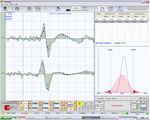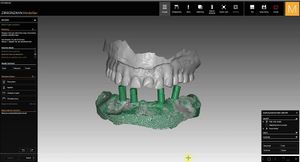Difference between revisions of "Masticationpedia:Sponsor/fr"
(Created page with "Masticationpedia:Sponsor") |
(Created page with "Exemple") |
||
| Line 12: | Line 12: | ||
__TOC__ | __TOC__ | ||
<div style="display:block; padding-left: 4.5em; padding-right: 4.5em"> | <div style="display:block; padding-left: 4.5em; padding-right: 4.5em"> | ||
== | ==Exemple 1== | ||
;''(Text in image captions)'' | ;''(Text in image captions)'' | ||
Revision as of 00:44, 30 December 2020
On its platform, The Charity's policy does not allow the presence of advertisements or banners. It nevertheless favours ethical sponsorship, based on the criteria of honesty and practical usefulness for the user of the information transmitted, which are described below.
In the contents of Masticationpedia, materials and procedures often mention the name of the manufacturer or owner along with their registered offices as is customarily done in international scientific journals. In Masticationpedia, however, these industrial references can be sponsored by the manufacturing industries and, therefore, will be represented in hypertext to lead the reader to the manufacturer’s website.
Hyper-textual links to the manufacturer will not be activated at the sponsor’s request, as it will only be inserted during editorial processing, without any commitment from the industry or institution. The interested party is, therefore, left free to consider a donation or sponsorship to the Masticationpedia project.
How does it work in practice? We have summarized three examples in which the links we are talking about are highlighted on a yellow background (only for these examples).
Exemple 1
- (Text in image captions)

Nihon Koden Tokyo, Japan Although the piezoelectric-triggered hammer in use for the mandibular reflex does not provide controlled reproducibility and a quantification of the stimulus intensity, simultaneous recordings of the two sides are considered an essential method for the accurate and acceptable evaluation of the side asymmetry as can be seen in Fig.1 which represents an EMG trace of the jaw jerk (Nemus2 NGF, EB Neuro, Firenze, Italy) recorded on the right (upper trace) and left (lower trace) masseters. The latency asymmetry is very small, ranging from 0 to 1 ms with an average of 0.13 ms (SD 0.17) in 131 normal subjects. Although jaw jerk may be delayed by several milliseconds in trigeminal neuropathy or multiple sclerosis, latency asymmetries of only 0.8 ms were considered as an upper normal limit in neurological studies. (Figure 1).
Example 2
- (Plain text)

Example 3
- (Caption)

Do you want to support us with an ethical sponsorship?
Write us at infomasticationpedia.org to receive all the information in this regard.